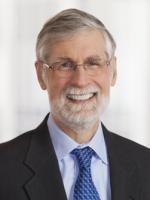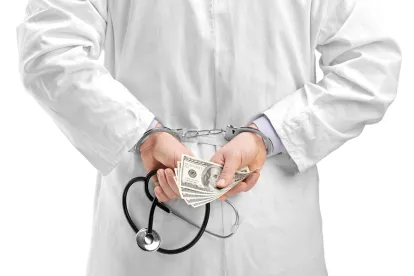After examining the body of evidence presented during trial, the Sixth Circuit refused to prescribe a new healthcare-fraud trial for Dr. Anis Chalhoub. A jury convicted the London (Ky.) cardiologist under 18 U.S.C. § 1347 for billing Medicare and other insurers for unnecessarily implanted pacemakers. Although “some of the government’s tactics here leave something to be desired,” a unanimous panel in US v. Chalhoub affirmed.
The government deployed an array of weapons from the arsenal available to health care fraud investigators nowadays. Data mining demonstrated that Dr. Chalhoub “had no trouble staying busy,” performing 853 stress tests in a year, while 75% of U.S. cardiologists performed 336 or fewer.
The prosecution’s lead expert reviewed 31 of Dr. Chalhoub’s procedures and testified that 27 were unnecessary. One of the other testifying cardiologists recounted turning off or turning down the pacemakers in 20 unnamed patients of Dr. Chalhoub, compared to 1 of 5,000+ pacemakers he had turned off during his career.
“Both Damning and Unanswerable”
The panel (Nalbandian (op.), Siler, Stranch) expressed “sympath[y]” for Dr. Chalhoub’s Due Process argument: that expert testimony regarding unnamed patients hindered his ability to present a meaningful defense. If the conviction rested on “damning but unanswerable” expert testimony about the anonymous cases, that would seriously prejudice the defendant’s ability to respond.
But those 20 weren’t the only patients at issue. (If they were, according to the panel, his claim might have proved “meritorious.”) And Chaloub received notice and a hearing in any event: he filed a motion in limine and wielded (largely unexercised) cross-examination rights for the expert testimony. Nor did the trial court abuse its discretion in admitting this evidence, because testimony about even a single patient would’ve been enough to support a conviction.
Nevertheless, the panel expressed displeasure with the government for sweeping the 20 unnamed patients into its closing argument. Although deemed harmless, the government potentially double-counted fraudulent implants when it “argued in summation that [Dr. Chalhoub] had installed unnecessary pacemakers in 50 patients” without knowing whether the experts’ lists of patients overlapped.
“Appeals to class prejudice”
Similarly, the panel rejected the “close question” raised by the government’s evidence about Dr. Chalhoub’s lifestyle. An FBI agent testified about the doctor’s after-tax income, cars, credit cards, and home improvements: “a handsome living, especially compared to the average wage-earner in London, Kentucky.”
The panel distinguished the evil of “evidence that impermissibly appeals to class prejudice” from expenditures that demonstrate a motive to commit fraud. In this case, no abuse of discretion occurred under the applicable 3-part test under FRE 403: other credible evidence of illegality, money spent that was not available from a legitimate source, and great wealth related to the period of alleged illegal activity. The doctor’s high spending “help[ed] establish Chalhoub’s motive for performing procedures that may not have been necessary.”




 />i
/>i
